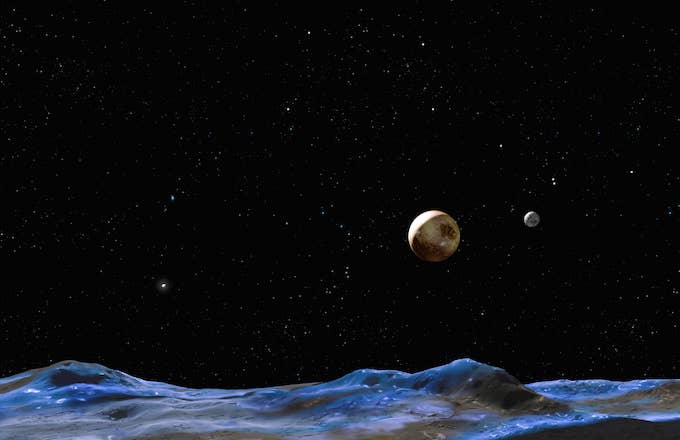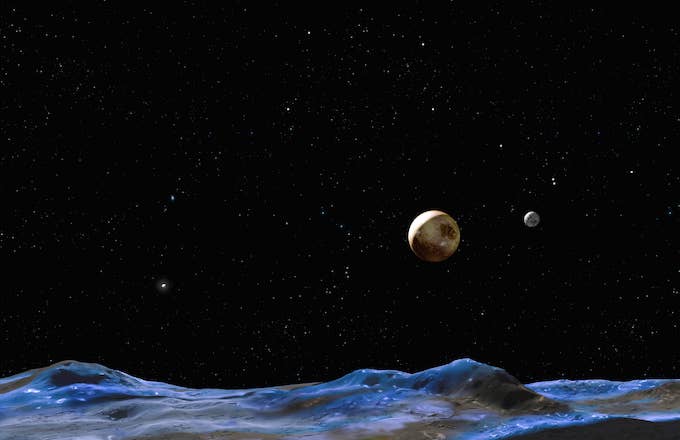
More bad news for Pluto: About 13 years after it was demoted to a dwarf planet, the celestial body is now facing an "atmospheric collapse"—at least, that what researchers believe.
According to a recent study published in the journal Astronomy and Astrophysics, experts predict Pluto's frigid atmosphere will vanish by 2030. The study cites 28 years worth of data that was collected by a team of scientists across eight countries.
Researchers monitored Pluto's surface pressure by observing ground-based occultation, which occurs when a celestial body blocks the light of distant stars. When Pluto passed in front of these light sources, scientists were able to measure how much light was absorbed by the dwarf planet's atmosphere; this allowed the teams to track the changes in Pluto's atmospheric temperature and pressure.
The scientists' findings? Pluto's pressure had almost tripled from 1988 to 2016.
"What the study found was when Pluto is farthest away from the Sun, and during its Winter in the Northern Hemisphere, nitrogen freezes out of the atmosphere," Andrew Cole, the study author and associate professor at the University of Tasmania's School of Natural Sciences, in a statement. "The atmospheric pressure has tripled over the past three decades, but as the planet orbits, our modeling showed that most of the atmosphere would condense out to almost nothing left.
He continued: "What our predictions show is that by 2030 the atmosphere is going to frost out and vanish around the whole planet."
If Pluto's atmosphere does collapse, the mass will appear much brighter to observers on Earth, Cole said. This is because the nitrogen frost, which will hide Pluto's red terrain, will reflect even more sunlight.

